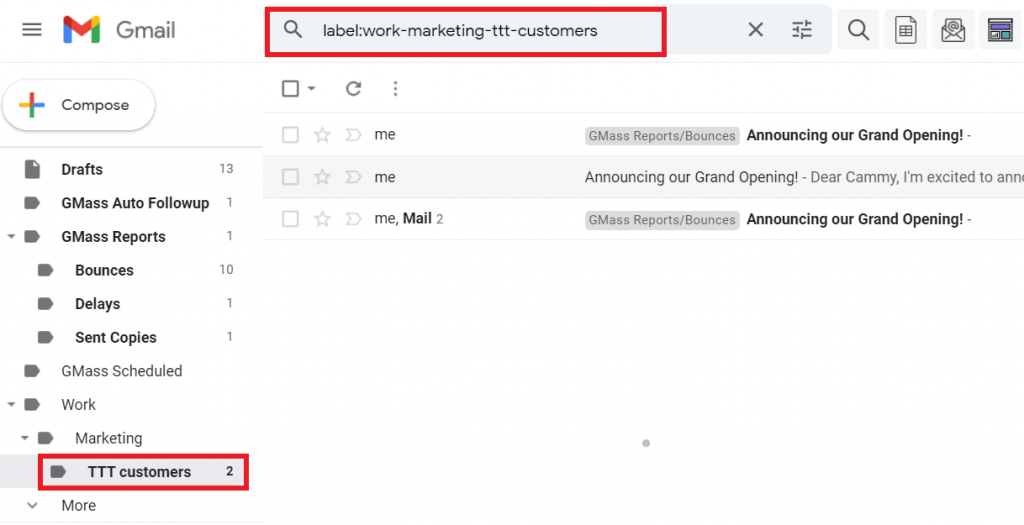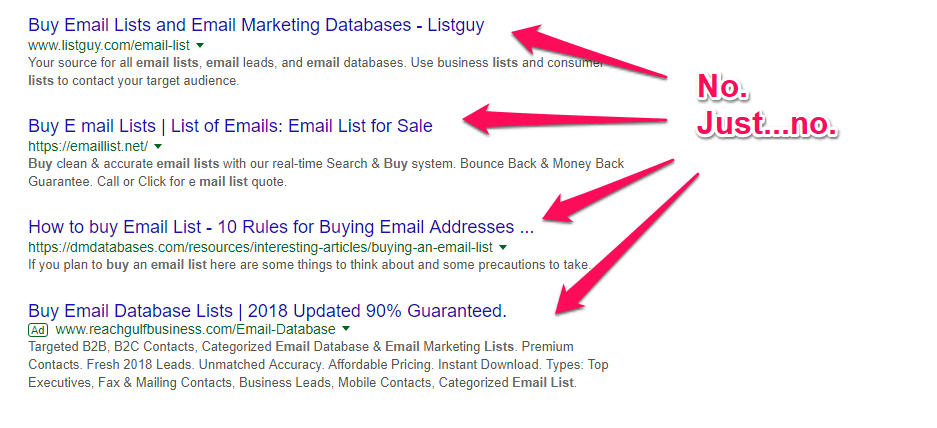Top Facts For Choosing A Physical Therapists Email List
Wiki Article
What Should I Consider Before Buying A Pathologist Email List?
There are a variety of factors to consider before purchasing an email pathologist list. This will ensure the information you purchase is correct and in compliance with all applicable laws and regulations. It must also be suitable for marketing and outreach needs. Take into consideration the following aspects: Data quality and accuracy
The source of the data: Make sure that the source of email lists gathers data from reliable sources such as professional directories and databases on healthcare. This will ensure that email addresses are accurate and up-to-date.
Verification Process: Confirm the list of emails has been checked recently. It is essential that service providers have a way to clean and validate emails by removing invalid or inactive email addresses. The best lists tend to be more likely to deliver email because they have low bounce rates.
Segmentation, Filtering and Customization: Select lists that allow you to filter your search by subspecialty or geographical location (e.g. clinical pathology, pathology for forensics) or the number of years of professional experience or connection to an institution. Customization allows more targeted marketing and helps you connect with the right audience.
2. Legal Regulations
Data Privacy Regulations : Ensure compliance with the laws in force, including the General Data Protection Regulations (GDPR) for Europe and the California Consumer Privacy Acts (CCPA) for the U.S. and other laws. The data of a pathologist must be collected in a compliant way, but maintaining privacy for individuals.
CAN-SPAM Act: If you live in the U.S.A. or you're targeting U.S.pathologists, then ensure that your email list is compliant with the CANSPAM Act. It governs every commercial email. Infractions could lead to severe fines.
Verify that the emails you send out have received the correct opt-in permission. This ensures the pathologists are able to consent to receiving promotional material, decreasing complaints about spam and preserving the reputation of your company.
3. Provider Reputation
Credibility of Provider: Look for a reliable firm that has a track record of supplying accurate and reliable lists. To assess the quality of the service review the reviews, seek out testimonials and contact other health marketers.
Transparency: Providers need to be transparent about their methods of collecting data and the frequency with which they update their databases. Avoid providers who are vague regarding the source of their email lists.
Customer Support: You should consider a service that has a strong customer support team for any technical difficulties or need help with the checklist.
4. Cost and Return on Investment (ROI)
Pricing Model: Take a look at different pricing models--whether it's pay-per-contact, a flat fee for the list, or subscription models. The cost should be evaluated against your marketing budget, as well as the possibility of earning a profit on your investment (ROI).
Refund Policy. Some service providers provide refunds for emails that do not meet their standards or are unvalid. Be sure to check that the company has a clearly defined return or exchange policies.
Value for money: Compare the value of the lists, its level of segmentation, and additional services offered (e.g. CRM integration or campaign management) against the price. If the list is not made available, it could not be efficient.
5. Ownership and use of data
Clarify the licensing and usage rights. Are you purchasing the list to only use it for a single time or do you have the list to continue running campaigns? Some providers provide an exclusive license and others allow unlimited use. This latter option is better suited for long-term campaigns.
Exclusive vs. Shared Lists - Find out the difference between an email list that is private or shared. Exclusive lists can lead to more engagement as the recipients are not bombarded by different sources.
6. Data Integration and Format
Integrity with CRM/Email-Marketing Tools Make sure that the list emails can be easily incorporated into your CRM tool or software for email marketing. The data must be in a standard format, such as CSV or Excel that is easily importable.
Data Segmentation: Consider how easy it will be to segment and sort the list once it has been integrated. Segmentation that is effective allows you to make personalized emails which typically are more open and have higher reply rates.
7. Ethical Considerations
Relevance of your message Pathologists are highly skilled professionals. Make sure that the product, service or message you provide is relevant to your customers' demands. Inadequate data can damage your brand reputation and result in spam complaints.
Spam reports could result from over-emailing or unwelcomed content. Be careful and follow the list ethically when making your plans to ensure that you don't damage the reputation of your sender.
Conclusion
The purchase of an email list for pathologists can be a powerful marketing tool if it is done right. To maximize the impact of your outreach, give the highest priority to the quality of data, conformity with legal requirements, and reputation of providers. Make sure you tailor the list to meet your specific needs and adhere to all privacy laws regarding data and ethical marketing practices. If you consider these factors and you are able to create a successful email campaign aimed at pathologists. View the pro pathologist email list for site tips.

What Factors Should I Be Thinking About When Buying An Oncologist Email List?
Consider the following aspects before buying an email list for your oncologist. These can assist you in making sure that the list you purchase is targeted, top-quality and legally legal. Here are the most important considerations to consider: 1. Accuracy and Quality of Data
Source of Information: Make sure that the email lists are obtained from reliable and trustworthy sources like medical directories, professional associations, or databases for healthcare. Beware of lists from untrusted or untrusted sources, since they may have inaccurate or outdated information.
Verification procedure: The list provider should implement an effective validation process to ensure that emails are valid, active and correct. The list must be regularly updated and cleaned to get rid of duplicate, inactive or incorrect contacts. This can improve the quality of delivery.
Segmentation - A good email list for doctors should have segments. Being able to filter the list by subspecialties (e.g., pediatric oncology, surgical oncology, hematology-oncology), geographic location, years of experience, or institution allows for more targeted outreach, increasing the likelihood of engagement.
2. Legal Regulations
Data Privacy Regulations - Ensure that the email list complies with data privacy laws, such as the General Data Protection Regulation in Europe and the California Consumer Privacy Act in the U.S.A. Email addresses must be recorded, processed and stored legally.
CAN SPAM Act Compliance: Check that all your campaigns in the U.S. comply with the CAN SPAM Act, which regulates commercial email communication. This includes incorporating an opt-out option in your emails, using accurate subject lines and not informing recipients by providing misleading information. Non-compliance will lead to penalties as well as damage to your reputation.
Opt-In Consent: Make sure all the addresses on the list were collected through opt-in consent. Oncologists should have agreed to receive marketing emails, ensuring compliance with privacy laws and reduce the possibility of complaints about spam or legal concerns.
3. Provider Reputation
Reputable Supplier: It is essential that you purchase your lists from a business that has a good reputation in the market. Review their testimonials, reviews and case studies to verify their reliability and quality of information. Established companies are more likely to provide accurate and legally compliant lists.
Transparency - The service provider should be transparent regarding the data's source and the frequency of its updating, and verification methods. A lack of transparency can be a red flag and indicate poor data.
Customer Support: Select an organization that provides prompt customer support should you have any concerns about the integration, segmentation, or compliance.
4. Cost and Return on Investment
Know the structure of pricing, for instance whether it is based upon the number of contacts or whether it is a one-time charge or subscription. Think about how your marketing budget as well as return on investment (ROI) will be affected by the pricing.
The policy for replacement and refunds: A reputable company will offer a return policy or a replacement policy for invalid emails or outdated email addresses. To protect your investment, be sure to read the conditions and terms prior to you make a purchase.
Do not just concentrate on price. A list with a lower price may seem appealing, but if it results in a poor deliverability or a poor engagement, it can ultimately harm your campaign. Prioritize the value of the list by ensuring that it offers accurate, relevant information.
5. Data Usage & Ownership
You should clarify whether the list will only be used once or if you have it for yourself and are able to utilize it indefinitely. Owning a list can provide greater flexibility and value in the event of multi-campaigns.
Exclusive vs. Shared lists: Decide which list is intended for you or is shared with many buyers. Exclusive lists are more useful because they decrease boredom in the audience which leads to increased engagement.
6. Data Integration and Format
CRM Compatibility. Check that you can integrate the list into your CRM or emailing software. The list must be delivered in an easily-integrated format that is compatible with CRM, such as CSV.
Simple Segmentation. The list should easily be segmented in your CRM. Being able to filter quickly by criteria like oncology subspecialty or geographic location will aid in tailoring your campaigns more effectively.
7. Ethical Considerations
Relevance of Messaging Oncologists, who are specialists, have very busy schedules. Your message must be relevant to their job or to their interests. Examples include medical equipment, continuing educational opportunities, and technological advances in the field of pharmaceutical. A poorly-crafted email can harm your reputation and result in low engagement.
Avoid Spam. Don't send excessive emails or uninvited messages. This can lead to spam complaints. It is important to send emails on a regular basis to engage your audience without burdening them.
Conclusion
If you are purchasing an email list of cancer specialists, you should prioritize data accuracy and legal conformity. Also, consider the reputation of the company you choose to use. Be sure the list is segmented, properly checked, and customized to your target audience. Consider these factors to create an efficient and reliable outreach strategy. View the recommended oncologist email list for more info.
